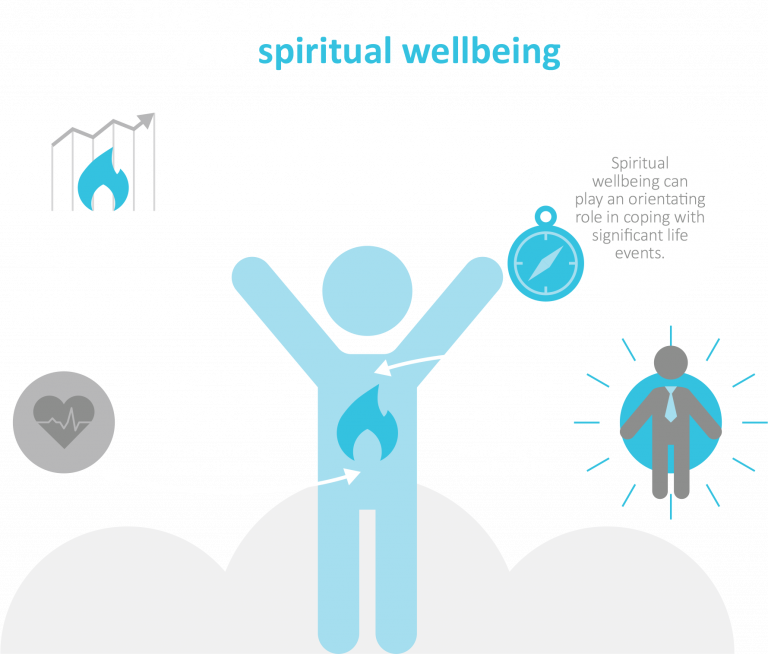Spiritual wellbeing is a deeply personal dimension of wellbeing, and can mean something different to everyone.
Spiritual wellbeing relates to our sense of life-meaning and purpose. It can include our connection to culture, community, spirituality and/or religiosity and includes the beliefs, values, mental models and ethics we hold.
What are beliefs, values and mental models?
Beliefs are assumptions about what we hold to be true, even without proof.
Values are the things that we consider important in the way we live our lives.
Mental models are complex representations of the external world around us. Mental models are based on our beliefs and guide our thoughts and behaviours.
Read more about spirituality here.

Did you know?
Developing our sense of spiritual wellbeing can help us feel happier, more in control and helps us deal with stress more effectively. Developing your sense of spiritual wellbeing is about asking yourself what is important to you and how this influences how you live your life.

Where can I start?
-
Explore your purpose
-
Explore your purpose and live by it
- Make a list of your beliefs and values.
- Ask yourself what matters most, what drives your behaviours and what you believe is just and fair.
- Remember, your list is a starting point and you will need to keep revisiting it.D
-
Do things that you enjoy
-
Ask yourself…
- What makes me smile? (activities, people, events, etc.)
- What activities make me lose track of time?
- What activities make me feel great about myself?
- Do I spend enough time outdoors and connecting with nature?
-
Take time to reflect
-
- Take time to think about your behaviours. Why do you do the things you do? Do these behaviours reflect your fundamental guiding values?
- Try taking a yoga or Tai Chi class to participate in contemplative practice.
-
Give back to the community
-
- Find a cause you are passionate about and give back to your community – remember to leverage your strengths.
- Ask yourself:
- What do I want to achieve?
- What value can I bring?
- How will I do this?
For more information
-
Resources
-
Resource name Source Summary Volunteering NT Volunteering South Australia & Northern Territory Inc. A not-for-profit organisation and the peak body for volunteering. Includes resources for volunteers, training and volunteering opportunities. What are your values? Deciding what’s most important in life Mind Tools Background information on values and a useful step-by-step guide for defining your values.
What to look out for
- Comparing with others
-
Spiritual wellbeing is deeply personal and will mean something different to everyone.
- Thinking your life meaning is right or wrong
-
Our life meaning and purpose is simply our motivation for the way we live our lives
- Looking for meaning in only one area of life
-
A sense of meaning and purpose is important in both your personal and professional lives.
References
- View
-
- Karakas, F. (2010). Spirituality and performance in organizations: A literature review. Journal of Business Ethics, 94, 89-106.
- Bartlett, S. J., Piedmont, R., Bilderback, A., Matsumoto, A. K., & Bathon, J. M. (2003). Spirituality, well-being, and quality of life in people with rheumatoid arthritis. Arthritis & Rheumatism (Arthritis Care & Research), 49, 778-783. doi: 10.1002/art.11456
- Yanez, B., Edmondson, D., Stanton, A. L., Park, C. L., Kwan, L., Ganz, P. A., & Blank, T. O. (2009). Facets of spirituality as predictors of adjustment to cancer: Relative contributions of having faith and finding meaning. Journal of Consulting and Clinical Psychology, 77, 730-741. doi: 10.1037/a0015820
- Carmody, J., Reed, G., Kristeller, J., & Merriam, P. (2008). Mindfulness, spirituality, and health-related symptoms. Journal of Psychosomatic Research, 64, 393-403.
